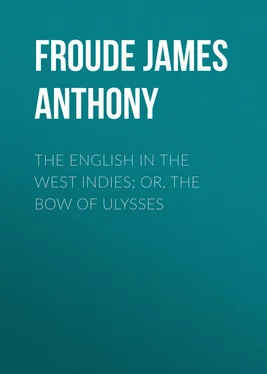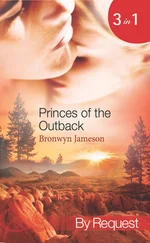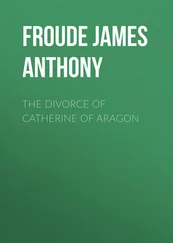James Froude - The English in the West Indies; Or, The Bow of Ulysses
Здесь есть возможность читать онлайн «James Froude - The English in the West Indies; Or, The Bow of Ulysses» — ознакомительный отрывок электронной книги совершенно бесплатно, а после прочтения отрывка купить полную версию. В некоторых случаях можно слушать аудио, скачать через торрент в формате fb2 и присутствует краткое содержание. Жанр: foreign_antique, foreign_prose, Путешествия и география, на английском языке. Описание произведения, (предисловие) а так же отзывы посетителей доступны на портале библиотеки ЛибКат.
- Название:The English in the West Indies; Or, The Bow of Ulysses
- Автор:
- Жанр:
- Год:неизвестен
- ISBN:нет данных
- Рейтинг книги:5 / 5. Голосов: 1
-
Избранное:Добавить в избранное
- Отзывы:
-
Ваша оценка:
- 100
- 1
- 2
- 3
- 4
- 5
The English in the West Indies; Or, The Bow of Ulysses: краткое содержание, описание и аннотация
Предлагаем к чтению аннотацию, описание, краткое содержание или предисловие (зависит от того, что написал сам автор книги «The English in the West Indies; Or, The Bow of Ulysses»). Если вы не нашли необходимую информацию о книге — напишите в комментариях, мы постараемся отыскать её.
The English in the West Indies; Or, The Bow of Ulysses — читать онлайн ознакомительный отрывок
Ниже представлен текст книги, разбитый по страницам. Система сохранения места последней прочитанной страницы, позволяет с удобством читать онлайн бесплатно книгу «The English in the West Indies; Or, The Bow of Ulysses», без необходимости каждый раз заново искать на чём Вы остановились. Поставьте закладку, и сможете в любой момент перейти на страницу, на которой закончили чтение.
Интервал:
Закладка:
So on that memorable day was the English Empire saved. Peace followed, but it was 'peace with honour.' The American colonies were lost; but England kept her West Indies; her flag still floated over Gibraltar; the hostile strength of Europe all combined had failed to twist Britannia's ocean sceptre from her: she sat down maimed and bleeding, but the wreath had not been torn from her brow, she was still sovereign of the seas.
The bow of Ulysses was strung in those days. The order of recall arrived when the work was done. It was proudly obeyed; and even the great Burke admitted that no honour could be bestowed upon Rodney which he had not deserved at his country's hands. If the British Empire is still to have a prolonged career before it, the men who make empires are the men who can hold them together. Oratorical reformers can overthrow what deserves to be overthrown. Institutions, even the best of them, wear out, and must give place to others, and the fine political speakers are the instruments of their overthrow. But the fine speakers produce nothing of their own, and as constructive statesmen their paths are strewed with failures. The worthies of England are the men who cleared and tilled her fields, formed her laws, built her colleges and cathedrals, founded her colonies, fought her battles, covered the ocean with commerce, and spread our race over the planet to leave a mark upon it which time will not efface. These men are seen in their work, and are not heard of in Parliament. When the account is wound up, where by the side of them will stand our famous orators? What will any one of these have left behind him save the wreck of institutions which had done their work and had ceased to serve a useful purpose? That was their business in this world, and they did it and do it; but it is no very glorious work, not a work over which it is possible to feel any 'fine enthusiasm.' To chop down a tree is easier than to make it grow. When the business of destruction is once completed, they and their fame and glory will disappear together. Our true great ones will again be visible, and thenceforward will be visible alone.
Is there a single instance in our own or any other history of a great political speaker who has added anything to human knowledge or to human worth? Lord Chatham may stand as a lonely exception. But except Chatham who is there? Not one that I know of. Oratory is the spendthrift sister of the arts, which decks itself like a strumpet with the tags and ornaments which it steals from real superiority. The object of it is not truth, but anything which it can make appear truth; anything which it can persuade people to believe by calling in their passions to obscure their intelligence.
CHAPTER IV
First sight of Barbadoes – Origin of the name – Père Labat – Bridgetown two hundred years ago – Slavery and Christianity – Economic crisis – Sugar bounties – Aspect of the streets – Government House and its occupants – Duties of a governor of Barbadoes.
England was covered with snow when we left it on December 30. At sunrise on January 12 we were anchored in the roadstead at Bridgetown, and the island of Barbadoes lay before us shining in the haze of a hot summer morning. It is about the size of the Isle of Wight, cultivated so far as eye could see with the completeness of a garden; no mountains in it, scarcely even high hills, but a surface pleasantly undulating, the prevailing colour a vivid green from the cane fields; houses in town and country white from the coral rock of which they are built, but the glare from them relieved by heavy clumps of trees. What the trees were I had yet to discover. You could see at a glance that the island was as thickly peopled as an ant-hill. Not an inch of soil seemed to be allowed to run to waste. Two hundred thousand is, I believe, the present number of Barbadians, of whom nine-tenths are blacks. They refuse to emigrate. They cling to their home with innocent vanity as though it was the finest country in the world, and multiply at a rate so rapid that no one likes to think about it. Labour at any rate is abundant and cheap. In Barbadoes the negro is willing enough to work, for he has no other means of living. Little land is here allowed him to grow his yams upon. Almost the whole of it is still held by the whites in large estates, cultivated by labourers on the old system, and, it is to be admitted, cultivated most admirably. If the West Indies are going to ruin, Barbadoes, at any rate, is being ruined with a smiling face. The roadstead was crowded with shipping – large barques, steamers, and brigs, schooners of all shapes and sorts. The training squadron had come into the bay for a day or two on their way to Trinidad, four fine ships, conspicuous by their white ensigns, a squareness of yards, and generally imposing presence. Boats were flying to and fro under sail or with oars, officials coming off in white calico dress, with awnings over the stern sheets and chattering crews of negroes. Notwithstanding these exotic symptoms, it was all thoroughly English; we were under the guns of our own men-of-war. The language of the Anglo-Barbadians was pure English, the voices without the smallest transatlantic intonation. On no one of our foreign possessions is the print of England's foot more strongly impressed than on Barbadoes. It has been ours for two centuries and three-quarters, and was organised from the first on English traditional lines, with its constitution, its parishes and parish churches and churchwardens, and schools and parsons, all on the old model; which the unprogressive inhabitants have been wise enough to leave undisturbed.
Little is known of the island before we took possession of it – so little that the origin of the name is still uncertain. Barbadoes, if not a corruption of some older word, is Spanish or Portuguese, and means 'bearded.' The local opinion is that the word refers to a banyan or fig tree which is common there, and which sends down from its branches long hairs or fibres supposed to resemble beards. I disbelieve in this derivation. Every Spaniard whom I have consulted confirms my own impression that 'barbados' standing alone could no more refer to trees than 'barbati' standing alone could refer to trees in Latin. The name is a century older than the English occupation, for I have seen it in a Spanish chart of 1525. The question is of some interest, since it perhaps implies that at the first discovery there was a race of bearded Caribs there. However this may be, Barbadoes, after we became masters of the island, enjoyed a period of unbroken prosperity for two hundred years. Before the conquest of Jamaica, it was the principal mart of our West Indian trade; and even after that conquest, when all Europe drew its new luxury of sugar from these islands, the wealth and splendour of the English residents at Bridgetown astonished and stirred the envy of every passing visitor. Absenteeism as yet was not. The owners lived on their estates, governed the island as magistrates unpaid for their services, and equally unpaid, took on themselves the defences of the island. Père Labat, a French missionary, paid a visit to Barbadoes at the beginning of the eighteenth century. He was a clever, sarcastic kind of man, with fine literary skill, and describes what he saw with a jealous appreciation which he intended to act upon his own countrymen. The island, according to him, was running over with wealth, and was very imperfectly fortified. The jewellers' and silversmiths' shops in Bridgetown were brilliant as on the Paris boulevards. The port was full of ships, the wharves and warehouses crammed with merchandise from all parts of the globe. The streets were handsome, and thronged with men of business, who were piling up fortunes. To the Father these sumptuous gentlemen were all most civil. The governor, an English milor, asked him to dinner, and talked such excellent French that Labat forgave him his nationality. The governor, he said, resided in a fine palace. He had a well-furnished library, was dignified, courteous, intelligent, and lived in state like a prince. A review was held for the French priest's special entertainment, of the Bridgetown cavalry. Five hundred gentlemen turned out from this one district admirably mounted and armed. Altogether in the island he says that there were 3,000 horse and 2,000 foot, every one of them of course white and English. The officers struck him particularly. He met one who had been five years a prisoner in the Bastille, and had spent his time there in learning mathematics. The planters opened their houses to him. Dinners then as now were the received form of English hospitality. They lived well, Labat says. They had all the luxuries of the tropics, and they had imported the partridges which they were so fond of from England. They had the costliest and choicest wines, and knew how to enjoy them. They dined at two o'clock, and their dinner lasted four hours. Their mansions were superbly furnished, and gold and silver plate, he observed with an eye to business, was so abundant that the plunder of it would pay the cost of an expedition for the reduction of the island.
Читать дальшеИнтервал:
Закладка:
Похожие книги на «The English in the West Indies; Or, The Bow of Ulysses»
Представляем Вашему вниманию похожие книги на «The English in the West Indies; Or, The Bow of Ulysses» списком для выбора. Мы отобрали схожую по названию и смыслу литературу в надежде предоставить читателям больше вариантов отыскать новые, интересные, ещё непрочитанные произведения.
Обсуждение, отзывы о книге «The English in the West Indies; Or, The Bow of Ulysses» и просто собственные мнения читателей. Оставьте ваши комментарии, напишите, что Вы думаете о произведении, его смысле или главных героях. Укажите что конкретно понравилось, а что нет, и почему Вы так считаете.












